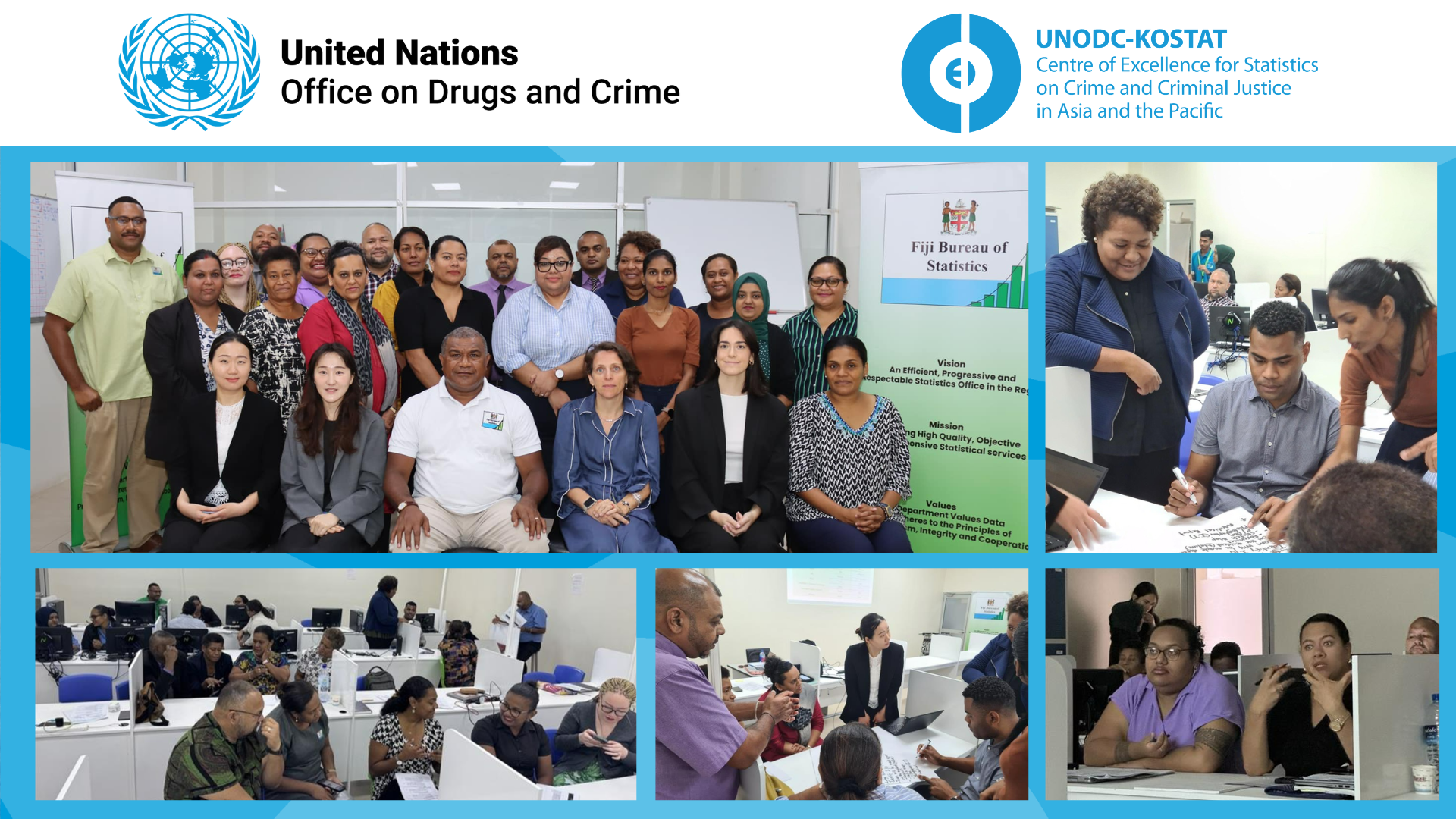
Suva (Fiji), 13-17 January 2025 - In March 2024, the UNODC-KOSTAT Centre of Excellence (CoE), kicked off the pilot study on the implementation of the Statistical Framework for Measuring the Gender-related Killing of Women and Girls (femicide/feminicide), in partnership the UN Women Centre of Excellence for Gender Equality (UN Women Centre). This initiative aims to collect and analyze data on femicide, providing evidence to develop targeted policies and strengthening prevention efforts.
As a continuation of fighting against gender-based violence, the second meeting was held on 13 January 2025 at the premises of the Fiji Bureau of Statistics (FBoS) in Suva, Fiji. The meeting opened with remarks from Kemueli Naiwama, Chief Statistician of FBoS, and Marie Pegie Cauchois, Officer in Charge at UNODC Pacific Islands Office, who highlighted the importance of data in shaping policies that address violence against women.
The session included preliminary findings from the kickoff meeting, followed by group activities where participants worked together to create a data collection flowchart as well as identify challenges that can hamper the measurement of femicide statistics in the context of Fiji.Throughout the meeting, participants mapped how a murder case travels from reporting to the production of crime statistics by government institutions. Insights shared by officials from the police, prosecutor’s office, judiciary, and civil society organizations helped identify data gaps and sparked important discussions on how to improve data collection and reporting. A key challenge discussed was the underreporting of violence against women cases, despite the country’s no-drop policy on domestic violence. The meeting also explored how better inter-agency communication and capacity-building could address these challenges.
Upon request of the FBoS, the CoE also delivered a two-day workshop on the implementation of the International Classification of Crime for Statistical Purposes (ICCS), a key tool developed by UNODC to improve crime data quality at the national, regional, and global level. The workshop was held as part of a broader effort to strengthen inter-agency communication and cooperation which is critical for establishing a robust data ecosystem.
On the first day, representatives from Fiji's crime and criminal justice institutions were introduced to the ICCS's principles, learning how to map national crime categories to ICCS standards. Through hands-on exercises, participants delved into the complexities of data collection for criminal justice statistics. The training highlighted the discrepancies in classification methods across institutions, which often led to inconsistent crime statistics.
The next day sessions emphasized the use of disaggregating variables and how they contribute to crafting policy-relevant crime data. The trainers highlighted how the Statistical Framework for Measuring the Gender-related Killing of Women and Girls builds on the ICCS by integrating a gender perspective. This approach aims to ensure that the gender motivation of killings is recognized, with data driving more targeted policy responses. The discussion also included roadmaps for national implementation, with participants drafting strategies for how ICCS can be fully integrated into Fiji's crime and criminal justice statistics. Challenges were identified, and solutions explored, especially around data sharing between institutions like the police, courts, and FBoS.
A total of 29 participants from relevant institutions joined the meeting and the training. They expressed a strong commitment to strengthening their efforts in implementing the ICCS and improving data submission processes. Participants also highlighted the importance of ongoing support from UNODC to raise awareness about the need for better coordination between institutions to ensure accurate and comprehensive data collection.
The workshop not only marked a significant step in Fiji’s commitment to combating femicide but also laid the groundwork for a national approach to improve crime and criminal justice statistics, ultimately leading to more effective policies and a safer future for women and girls.
Further information on the CoE can be found here, X @CoE_UNODC and Facebook @UNODC.KOSTAT.CoE.